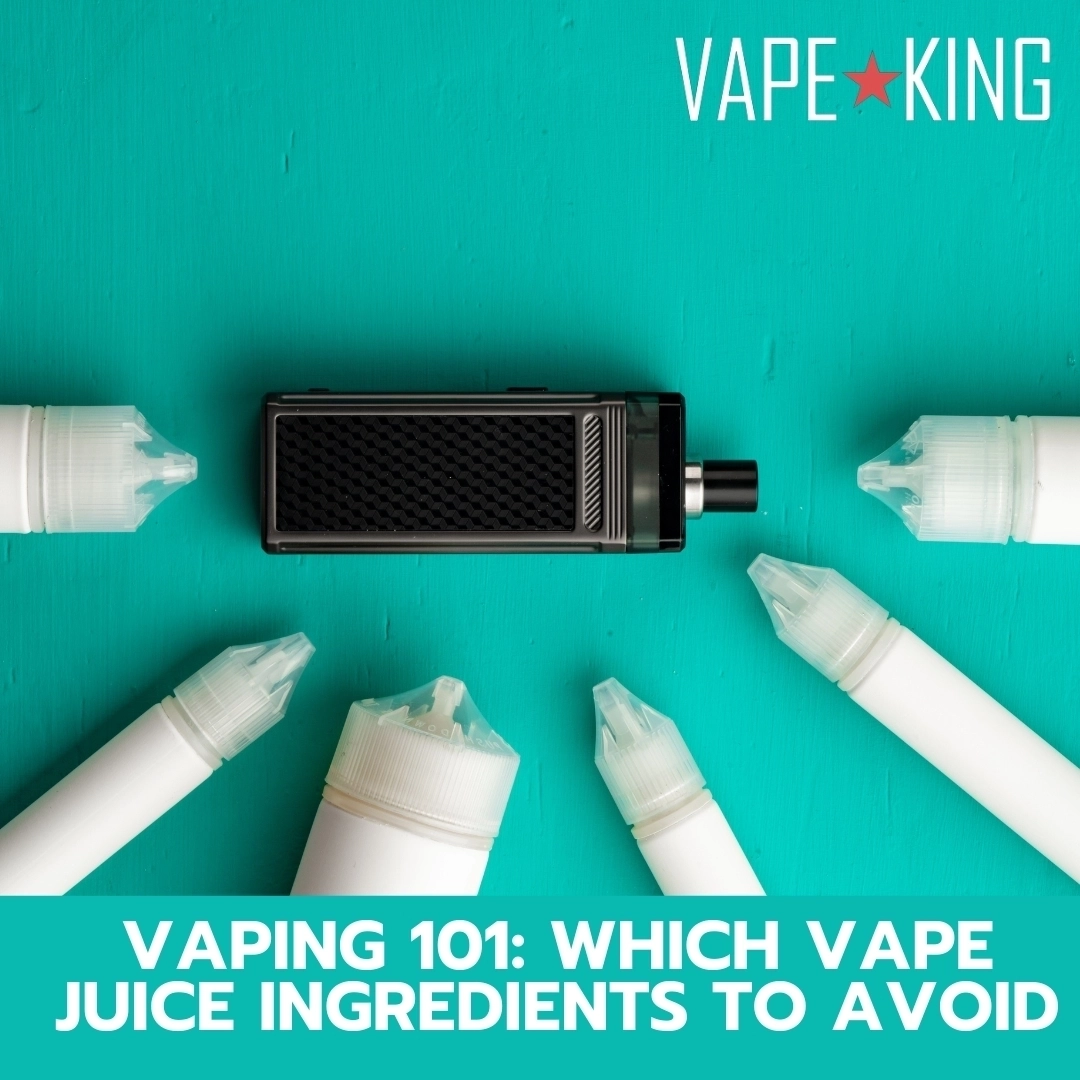Free Shipping on orders R1000 or more!
Vaping 101: Which Vape Juice Ingredients to Avoid

The vaping world has faced scrutiny lately, leading many to question whether vaping is genuinely a healthier alternative to smoking. A quick Google search asserts that vaping is indeed 95% healthier than smoking. However, concerns have been raised about the safety of e-juice, considering we inhale its substances. This prompts a valid question: What exactly is in e-liquid? This Vaping 101 guide breaks down the composition of e-liquid, highlighting safe ingredients and those to avoid.
What's in Vape Juice?
To achieve its smooth flavor, e-juice incorporates base ingredients - Propylene Glycol (PG), Vegetable Glycerin (VG), or a blend of both. These bases mix with natural or artificial flavors, creating a diverse range. Understanding the safety of these ingredients is crucial for a secure vaping experience.
Safe: Propylene Glycol (PG)
PG is non-toxic and widely used in food, coloring, and medicine. Its combination with VG yields a smoother vape experience compared to 100% PG.
Safe: Vegetable Glycerin (VG)
VG, a non-toxic vegetable-based liquid, adds sweetness and thickness. While 100% VG is too dense for efficient vaping, a PG/VG blend is recommended.
Both PG and VG are common in food items, deemed safe for human consumption. However, some may exhibit an allergic reaction to PG, signaling a need to switch to VG-based e-liquids.
Which Vape Juice Ingredients to Avoid
While base ingredients are generally safe, attention shifts to certain chemicals found in e-juice flavors. Diketones, specifically diacetyl, acetyl propionyl, and acetoin, raise concerns.
Unsafe: Diacetyl
Diacetyl gained notoriety when linked to "popcorn lung" among factory workers inhaling high amounts. While vapers inhale far less, it remains a harmful substance, emphasizing potential health risks.
Questionable: Acetyl Propionyl and Acetoin
While not as concerning as diacetyl, acetyl propionyl and acetoin are viewed cautiously by health-conscious vapers. They may increase the rate of diacetyl's chemical reaction, raising uncertainties about potential health implications.
Despite lacking concrete scientific evidence of harm, many vapers avoid e-juices containing these diketones, acknowledging vaping's ongoing scrutiny in scientific research.
Vaping vs. Smoking
Returning to the core question of whether vaping is genuinely better than smoking, studies lean toward vaping as the healthier option. A Harvard T.H. Chan School of Public Health study revealed that smoking tobacco cigarettes resulted in inhaling 750 times more diacetyl than vaping e-juice. Many e-juice manufacturers have responded by producing diketone-free flavors, further supporting vaping's health benefits.
Confident about vaping safety? Share your experiences and thoughts on diketone-free brands or DIY e-juice recipes in the comments below.
No posts found
Write a review

